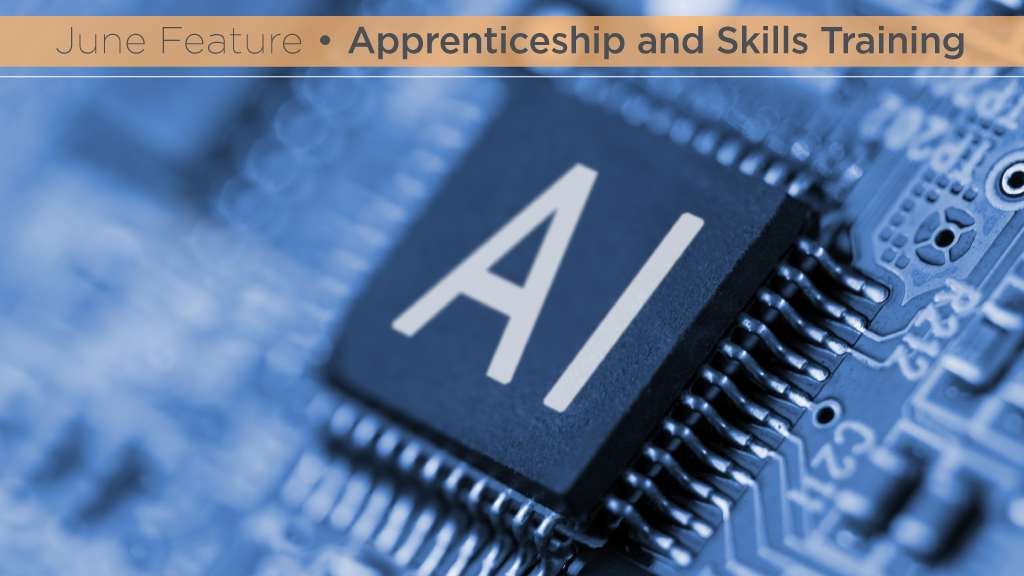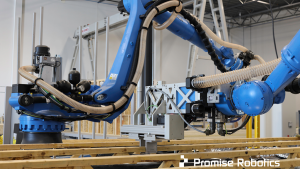Is artificial intelligence (AI) really intelligent?
And, if it is, what are its intentions?
In the public forum, it’s either the key to heaven on earth, where everything is done faster and smarter, or a miserable dystopia, where machines tell humans what to do.
Whatever we think of AI, it’s already been having an effect on the construction industry, including skills training and knowledge transfer.
To get an idea of the impact of AI and what the future might hold, the Journal of Commerce spoke to some experts in AI and construction.
Helen Goodland, head of research and innovation at Scius Advisory, a Vancouver consulting firm, says although AI has “huge” potential in construction, many industry people still aren’t sure what it is or what it does.
“There are as many descriptions of AI as the number of people you ask,” says Goodland.
She says the best use of AI in construction at the moment is for rudimentary and specific tasks that humans don’t want to undertake, such as helping to identify worksite hazards and potential safety problems.
Joe Geluch, president of Naikoon Contracting Ltd. in north Vancouver, says AI can be applied to skills training by quickly writing an instructional manual or creating a training video or online learning material.
“Artificial intelligence might eliminate some outsourcing of specialized tasks, such as writing, graphic design and social media, and enable construction companies to do it themselves,” he says. “As a matter of fact, we’re piloting using AI to create graphic design now.”
Puyan Zadeh, a research associate in the civil engineering department at the University of British Columbia, says it is difficult to imagine teaching and training in the future without AI.
“Artificial intelligence has the potential to revolutionize construction training,” says Zadeh. “From targeted training using generative AI to personalized feedback based on big data analysis, AI can enhance the learning experience and empower students to excel in their studies.”
Zadeh says generative AI algorithms can be used in construction training.
“Instead of using ChatGPT or similar models, students can engage in conversations with AI systems about specific books or content,” he says.
“This enables students to analyze and understand the material more effectively, as they can test their knowledge through automatically-generated tests based on a book’s content.”
Younes Rashidi, vice-president of engineering operations at Hedgehog Technologies Inc. in Burnaby, says AI can play “a significant role” in training engineers.
“It can be a challenge for senior engineers to find the time to mentor junior engineers,” says Rashidi. “AI can help out. It allows young engineers to design models and try them out in a simulated environment before they are actually built.”
Rashidi says engineers are already using ChatGPT now and there will be many more applications of AI in the future.
“For example, a mechanical engineer could use virtual reality to test and assemble a machine before actually building it,” he says.
Rashidi says junior and senior engineers need to learn how to use AI to improve the quality of their work and to do it faster and more efficiently.
“We need to remember AI is only a tool,” he says. “It will change how people in engineering work, but it will never replace engineers.”
Maite Bravo, program head and instructor in the architectural and building technology diploma program at British Columbia Institute of Technology, says students in the architectural elective course she teaches use Midjourney, an image generator that translates preliminary concepts of building designs from text.
“Students can test variations of form, material, design features or weather conditions on a building design,” says Bravo.
She says Midjourney can produce quick and effective visualizations that would take many hours to generate.
“These images are tremendously helpful by assisting in the design process and enabling communication with clients and users,” says Bravo.
She says AI will soon be “embedded seamlessly” in most everyday professional activities.
“For example, machine learning can learn from data and develop accurate prediction models, as well as advise on the best way to perform certain tasks,” Bravo says. “This is critical in construction projects where there are thousands of pieces of information that need to be processed, organized, distributed and managed.”
She says it’s “crucial” students are trained to use AI tools and to be able to select, analyze and evaluate the best solutions for a given task.
“AI can’t do that by itself,” says Bravo. “Artificial intelligence can be a useful assistant that can perform certain tasks, but a human mind will have to direct it.”












Recent Comments
comments for this post are closed